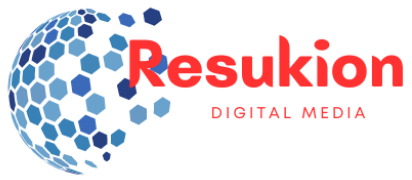The Rise of Digital Media: How Information is Being Transformed
In our increasingly interconnected world, the rise of digital media has revolutionized the way we consume and distribute information. With the advent of the internet and the rapid evolution of technology, traditional forms of media such as newspapers and magazines have taken a backseat to digital platforms that offer instant access to news, videos, and other forms of content. This paradigm shift has not only transformed the way we communicate, but it has also democratized information, giving individuals unprecedented power to share their ideas and perspectives with the world.
One of the key ways in which digital media has transformed the information landscape is through its accessibility. In the past, one had to wait for the morning or evening newspaper to get updates on current events. However, with the rise of digital media, news is now available in real-time, with online news outlets constantly updating their articles and videos to reflect the latest developments. This instant access to information has fueled a hunger for up-to-the-minute news, with many people relying on social media platforms and news aggregators to stay informed.
Moreover, digital media has broken down geographical barriers, allowing us to access information from anywhere in the world. Through the internet, we can read articles from foreign news outlets, follow social media accounts of individuals living in different countries, and watch live-streamed events from across the globe. This has expanded our understanding of the world, enabling us to learn about different cultures, perspectives, and experiences with ease. As the saying goes, the world has truly become a global village, and digital media is at the heart of this transformation.
Alongside the expansion of accessibility, the rise of digital media has also transformed how information is shared and consumed. Social media platforms have emerged as powerful tools for spreading news, with millions of users sharing articles, videos, and other content with just a few clicks. This has led to the phenomenon of viral content, where a piece of information can spread rapidly, reaching millions of people within a short timeframe. The power of social media as an information-sharing platform cannot be underestimated, as it has the ability to mobilize people and shape public opinion on a global level.
Not only has digital media changed how information is distributed, but it has also enabled new forms of media to emerge. Podcasts, for example, have become an increasingly popular way to consume information and entertainment. These audio shows cover a wide range of topics, from true crime to business advice, and can be listened to anytime, anywhere. Additionally, video-sharing platforms like YouTube have given rise to a new generation of content creators, who produce everything from instructional videos to documentaries. These new forms of media offer diverse perspectives and allow individuals to explore their interests in greater depth.
However, while the rise of digital media has brought about numerous opportunities, it has also raised concerns regarding the credibility of information. With the ease of publishing online, anyone can create and share content, which has led to the proliferation of misinformation and fake news. This, in turn, has made it challenging for consumers to distinguish between reliable and unreliable sources. As a result, media literacy and critical thinking skills have become increasingly important in navigating the digital information landscape.
In conclusion, the rise of digital media has transformed the way we consume and distribute information. It has made news and other forms of content instantly accessible, breaking down geographical barriers in the process. The power of social media and viral content has revolutionized how information is shared, while new forms of media such as podcasts and YouTube have offered diverse perspectives. However, the proliferation of misinformation and fake news highlights the need for media literacy in this digital age. As technology continues to advance, it is crucial to adapt and develop the necessary skills to navigate the evolving information landscape.




